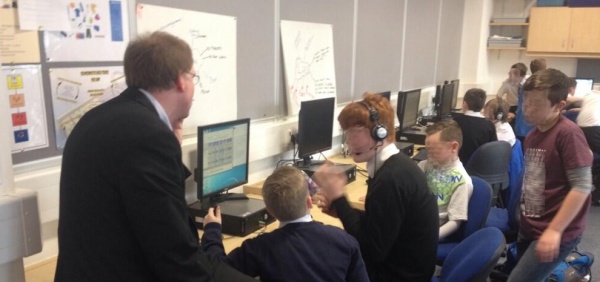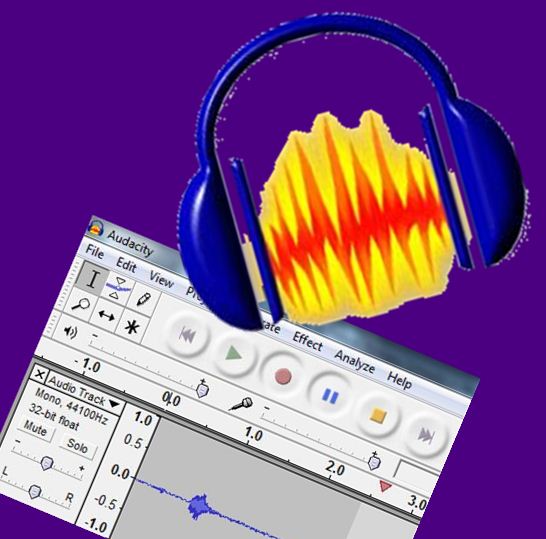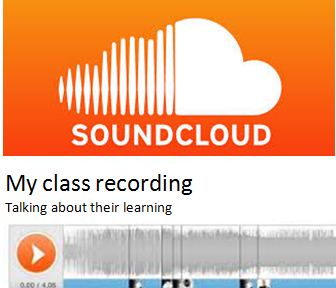 Malcolm Wilson, ICT Curriculum Development Officer in the Curriculum Support team of Service and School Improvement, Falkirk Council Education Services, supported pupils from the Grangemouth High School cluster to create and edit audio recordings which they shared online as part of a national Digital Commonwealth project. Creating, editing and using an online tool to share recordings provided one set of skills learned across a series of themes in this project.
Malcolm Wilson, ICT Curriculum Development Officer in the Curriculum Support team of Service and School Improvement, Falkirk Council Education Services, supported pupils from the Grangemouth High School cluster to create and edit audio recordings which they shared online as part of a national Digital Commonwealth project. Creating, editing and using an online tool to share recordings provided one set of skills learned across a series of themes in this project.
Working with Dugald MacGilp (of Young Reporters for the Environment, part of the Keep Scotland Beautiful Charity) and Steve Duffy of Grangemouth High School the pupils were set the task of creating an audio recording of a piece of writing in rhyme which represented a Commonwealth country of their choice. Some groups of pupils chose to find a representative poem from a Commonwealth country of their choice, while some did some research about their chosen Commonwealth country and their Commonwealth athletes (in the lead up to the Commonwealth Games in Glasgow) before creating a piece of writing, poem or rap.
Click here for Jamaica Rap which one group of pupils pupils created, edited in Audacity (including adding backing sounds) and uploaded to AudioBoo, free online podcasting host.
Click here for Swaziland Rap which another group of pupils created, edited in Audacity (including adding backing sounds) and uploaded to AudioBoo.
 Audacity is free downloadable software which works like a word-processor except it is used to edit audio recordings. With a simple click on a record button in the screen, and with a connected headset/microphone a redording can quickly be made of any audio. Once recorded there are simple cut/copy and paste icons just as in a word-processor to remove unwanted noise or move elements and reuse in a different sequence. It can also be used to have multiple tracks so that once the spoken word (for example) is recorded you can play it back and also record a new track at the same time (such as to add a beat sound). Once you are finished editing the audio you can go to File – export – and save as an mp3 file which is then ready to be shared with others for playing back. Click here for more information about where to download the Audacity software and how to use it.
Audacity is free downloadable software which works like a word-processor except it is used to edit audio recordings. With a simple click on a record button in the screen, and with a connected headset/microphone a redording can quickly be made of any audio. Once recorded there are simple cut/copy and paste icons just as in a word-processor to remove unwanted noise or move elements and reuse in a different sequence. It can also be used to have multiple tracks so that once the spoken word (for example) is recorded you can play it back and also record a new track at the same time (such as to add a beat sound). Once you are finished editing the audio you can go to File – export – and save as an mp3 file which is then ready to be shared with others for playing back. Click here for more information about where to download the Audacity software and how to use it.
AudioBoo is one of a number of free online tools which can be used to either upload previously recorded mp3 files or to record straight from microphone. The resulting AudioBoo recording can then be shared with others and played straight from the page where it is stored.




